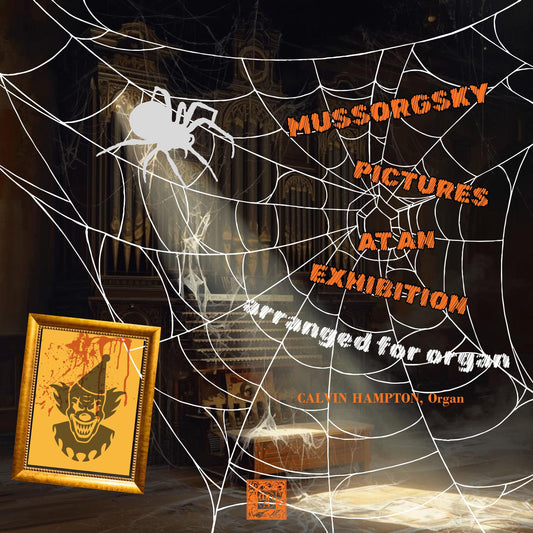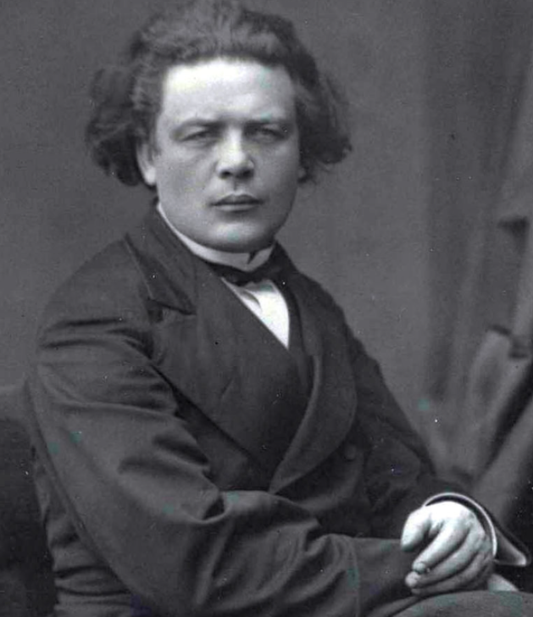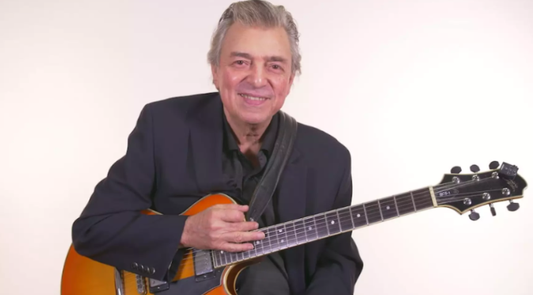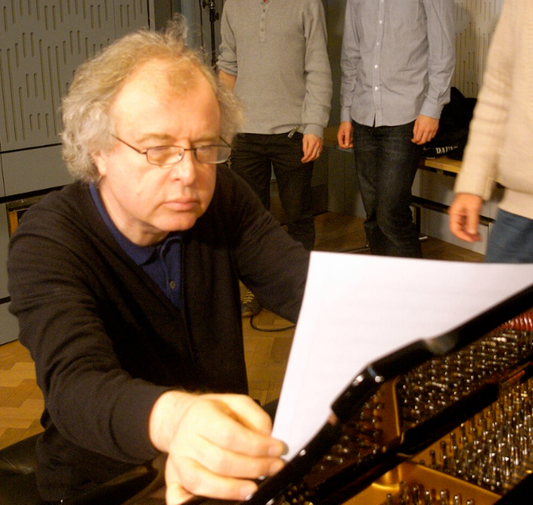Collection: MODEST MUSSORGSKY (1839-1881)
Modest Petrovich Mussorgsky stands as one of the most fiercely original and uncompromising voices in Russian music. A key member of the influential group known as "The Mighty Handful" (or "The Five"), he sought to forge a truly national musical language, distinct from Western European traditions, drawing inspiration directly from Russian history, folklore, and the rhythms of spoken Russian.
Born in Karevo, Pskov Governorate, into a landowning family, Mussorgsky received early piano lessons from his mother. His prodigious talent was evident, but following family tradition, he pursued a military career, entering the Cadet School of the Guards in Saint Petersburg. It was during his time as an officer in the prestigious Preobrazhensky Regiment that his fateful encounters with Alexander Borodin and, crucially, Mily Balakirev occurred. Balakirev, the charismatic leader and mentor of "The Five," recognized Mussorgsky's raw talent and encouraged him to dedicate himself to composition, despite his lack of formal theoretical training.
Inspired by Balakirev's nationalist ideals, Mussorgsky resigned his commission in 1858 to pursue music. Alongside Balakirev, Borodin, César Cui, and Nikolai Rimsky-Korsakov, he aimed to create music rooted in Russian sources, often shunning the perceived academicism of conservatory training. Mussorgsky, perhaps the most radical of the group, possessed an uncanny ability to translate the inflections of Russian speech and the essence of peasant life into musical terms. His harmonic language was often bold, unconventional, and sometimes dissonant, prioritizing dramatic truth and psychological realism over polished elegance.
His compositional journey was marked by intense creativity but also by periods of self-doubt and incompletion, exacerbated by personal struggles. His early orchestral work, St. John's Night on the Bare Mountain (later famously revised by Rimsky-Korsakov as Night on Bald Mountain), showcased his fascination with the demonic and grotesque.
Mussorgsky's towering achievement is the opera Boris Godunov (1868-1873). Based on Pushkin's play, it's a monumental historical drama focusing not just on the guilt-ridden Tsar but crucially on the Russian people themselves, depicted with unprecedented realism and empathy. Its initial rejection led to revisions, but its raw power, innovative use of chorus, and psychologically penetrating portrayal of Boris secured its place as a masterpiece of Russian opera.
Following the sudden death of his friend, the artist and architect Viktor Hartmann, Mussorgsky composed his most famous instrumental work, the piano suite Pictures at an Exhibition (1874). This series of musical depictions of Hartmann's artworks demonstrates his extraordinary gift for characterization and vivid scene-painting, later achieving global fame through Maurice Ravel's brilliant orchestration.
Other significant works include the poignant song cycle Songs and Dances of Death (1875-1877), a stark meditation on mortality, and the unfinished historical opera Khovanshchina, which delves into political and religious strife in 17th-century Russia (completed and orchestrated by Rimsky-Korsakov). He also began work on a comic opera, Sorochyntsi Fair, based on Gogol (also completed by others).
Mussorgsky's later years were marred by increasing alcoholism and financial hardship following his departure from a stable civil service job. His health declined rapidly, leading to his death in Saint Petersburg in 1881, just days after his 42nd birthday.
Despite the often "unpolished" state of his scores (many were later "corrected" or completed by Rimsky-Korsakov and others), Modest Mussorgsky's genius lies in his untamed originality and profound connection to the Russian spirit. His bold harmonies, rhythmic vitality derived from speech, and deep psychological insight influenced generations of composers, including Debussy, Janáček, and Shostakovich. He remains a vital figure, celebrated for capturing the raw, dramatic, and deeply human essence of Russia in music.




